Happy Wednesday! Let’s jump right in, shall we?
Quick Hits: Today’s Top Stories
Two foreign aid workers from Thailand were killed in a strike by Hamas in Southern Israel Tuesday. Eight other people were seriously injured following the direct hit to a packing house near the Gaza border.
Andrew Giuliani, son of former New York Mayor Rudy Giuliani and associate director of the Office of Public Liaison in the Trump administration, launched his bid for governor of New York Tuesday. Giuliani will seek the GOP nomination to oust incumbent Gov. Andrew Cuomo in 2022.
The Elizabeth City district attorney will not initiate criminal proceedings against the police officers involved in the April shooting of Andrew Brown Jr., saying that “Mr. Brown's death, while tragic, was justified because Mr. Brown's actions caused three deputies to reasonably believe it was necessary to use deadly force to protect themselves and others.”
Spain on Tuesday deployed troops to Ceuta, an enclave on Morocco’s north coast, after the arrival of a record 6,000 migrants on a single day. The Spanish government has already deported about 2,700 migrants from the European Union territory, but no minors.
The Biden administration will lift sanctions on the CEO and corporation behind the construction of Russia’s NordStream 2 pipeline following pressure from Germany, according to Axios.
The United States confirmed 25,944 new cases of COVID-19 yesterday per the Johns Hopkins University COVID-19 Dashboard, with 2.7 percent of the 971,204 tests reported coming back positive. An additional 851 deaths were attributed to the virus on Tuesday, bringing the pandemic’s American death toll to 587,203. According to the Centers for Disease Control, 27,027 Americans are currently hospitalized with COVID-19. Meanwhile, 1,123,306 COVID-19 vaccine doses were administered yesterday, with 158,365,411 Americans having now received at least one dose.
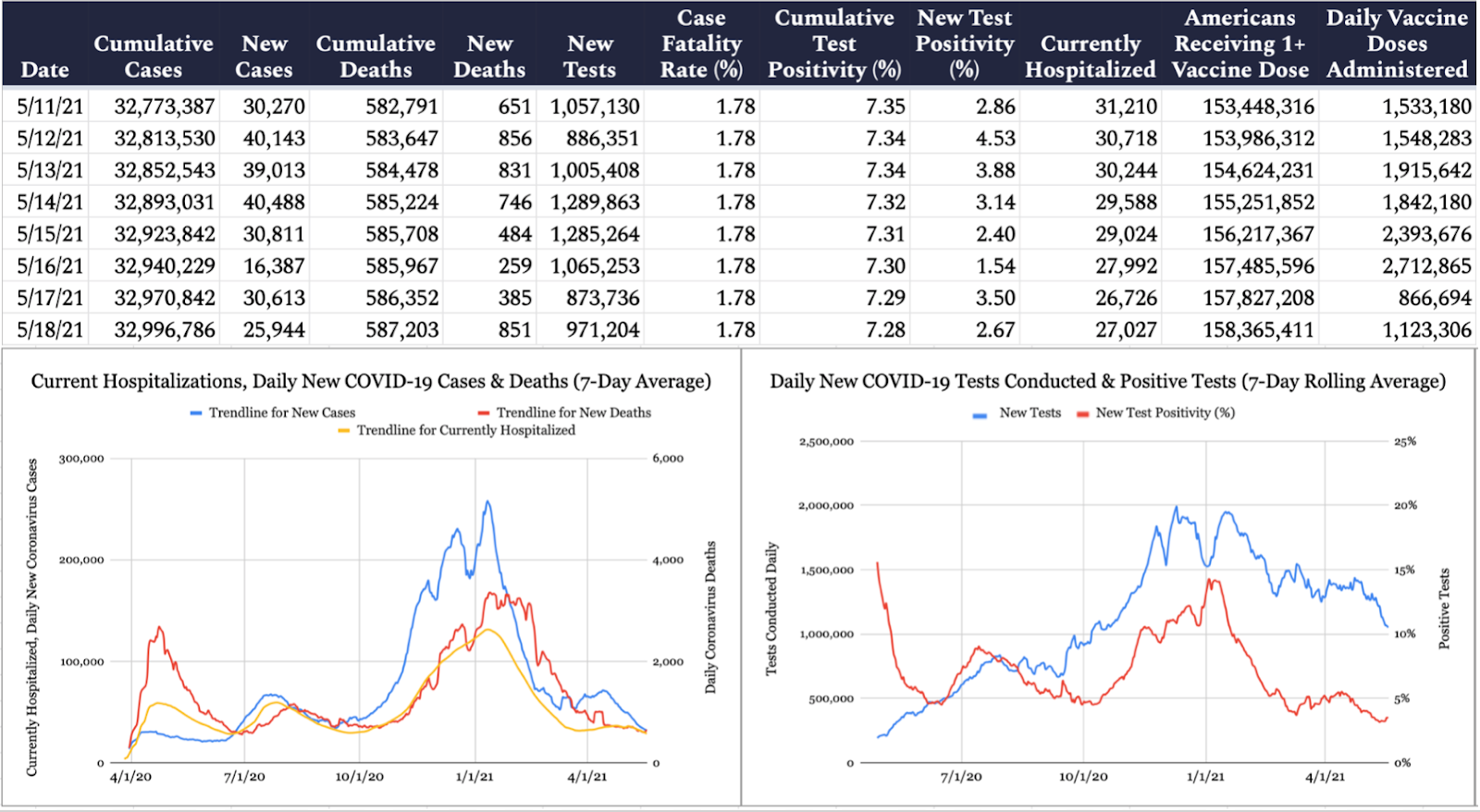
Intra-Democratic Party Disputes Mount Over Israel
As Israel and the Palestinian terrorist group Hamas continue their second week of fighting, White House press secretary Jen Psaki told reporters aboard Air Force One on Tuesday that the Biden administration will continue to emphasize “quiet, intensive diplomacy” with Israel as the conflict progresses. Psaki added that “the best way to end an international conflict is typically not to debate it in public, so we will continue to remain closely engaged behind the scenes.”
Also on Tuesday, Psaki acknowledged President Joe Biden’s private phone call with Israeli Prime Minister Benjamin Netanyahu the day before, in which Biden “expressed his support for a ceasefire and discussed U.S. engagement with Egypt and other partners towards that end,” according to a White House readout of the conversation released Monday.
But tensions continue to brew between the White House and Democratic lawmakers, who insist that the administration is not doing enough to demand an immediate end to the conflict.
Last week, Hamas launched a series of rockets into Jerusalem for the first time since 2014, prompting retaliatory airstrikes from Israel and setting into motion an ongoing exchange of fire that continues to roil Jerusalem. The rocket attacks began last Monday in anticipation of a court ruling on the Israeli government’s planned evictions of six Palestinian families from East Jerusalem’s Sheikh Jarrah neighborhood.
More than 3,000 rockets have been launched by Hamas into Israel. Some Democratic lawmakers have taken aim at Biden’s refusal to greenlight a U.N. Security Council resolution calling for “restraint, refraining from provocative actions and rhetoric, and upholding and respecting the historic status quo at the holy sites.”
The draft statement also reportedly emphasized the U.N. Security Council’s “serious concern over the possible evictions of Palestinian families in Sheikh Jarrah and Silwan neighborhoods in occupied East Jerusalem, many of whom have lived in their homes for generations.” The United States has repeatedly used its veto power to block the resolution.
Democratic Sen. Tim Kaine said Monday he was troubled by the Biden administration’s decision to block the resolution. “You’ve got Israeli and Palestinian civilian casualties, and we should be aggressively trying to get to the ceasefire point so that they stop,” Kaine told reporters Monday evening.
Even though most Democratic lawmakers acknowledge Israel’s right to defend itself, some top Democrats have stepped up public pressure on the administration to seek an immediate ceasefire. “Now, after more than a week of hostilities, it has become even more apparent that a ceasefire is necessary,” House Speaker Nancy Pelosi said in a statement Tuesday afternoon. “There must be a serious effort on the part of both parties to end the violence and respect the rights of both the Israeli and Palestinian people.”
“It is with respect for Israeli and Palestinian lives that leaders must strive for peace through a negotiated two-state solution,” Pelosi continued.
A number of progressives have been far more critical of the Israelis than the party establishment has been in prior years. Liberals in the House have responded to the conflict by calling Israel an “apartheid state” and accusing the country of human rights abuses against Palestinians.
“Apartheid states aren’t democracies,” Democratic Reps. Alexandria Ocasio-Cortez, Cori Bush, and Rashida Tlaib all tweeted on Saturday in reference to Israel.
Tlaib is the lone Palestinian lawmaker in Congress and has family living in the West Bank. Ahead of Biden’s visit to Ford’s Rouge Electric Vehicle Center in Dearborn, Michigan, yesterday, Tlaib pressed the president to act in a heated exchange on the airport tarmac after he deplaned from Air Force One.
“Congresswoman Tlaib conveyed to President Biden the same messages she has shared on the House floor and publicly,” an aide to Tlaib told ABC reporter Ben Siegel. “Congresswoman Tlaib reiterated that the status quo is enabling more killing, that the current U.S. approach of unconditional support for the Israeli government is not working, and that the White House must do far more to protect Palestinian lives, dignity, and human rights.”
In a conversation with reporters Monday evening, Democratic Sen. Chris Murphy objected to the idea that congressional Democrats have substantially changed their positions on Israel. “I don’t buy this narrative one bit,” Murphy said. “I mean, that’s not saying there’s no shift in the Democratic Party. But what has changed is Israel’s position.”
Murphy said the Democratic Party remains rooted in the idea that there needs to be two states, but that the Israelis are not as committed to that as they once were. “Maybe you see Democrats being a little bit more willing to criticize Israel,” Murphy continued. “That’s because the Israeli position has changed, and it’s increasingly difficult to imagine that future Palestinian state.”
Senate Minority Leader Mitch McConnell on Monday strongly criticized the rhetoric from his Democratic colleagues and rejected what he called the “obscene moral equivalence” between both sides. “No one is glad to see this fighting,” McConnell said on the Senate floor on Monday. “But we are already seeing some push the false narrative that this conflict is a tragic dispute between two legitimate combatants where both sides share blame that is roughly equal.”
“To say that ‘both sides’ need to de-escalate downplays the responsibility the terrorists have for initiating this conflict in the first place, and suggests Israelis are not entitled to defend themselves against on-going rocket barrages,” McConnell continued.
GOP Officially Cool to a January 6 Commission
The House will vote later today on legislation to establish a 9/11 Commission-style investigation into the January 6 assault on the U.S. Capitol.
Reps. Bennie Thompson and John Katko, the top Democrat and Republican respectively on the House Homeland Security Committee, announced they’d reached an agreement to move forward with the bill last week after months of partisan gridlock.
The breakthrough was a minor surprise, given how far apart the two parties had seemed on the commission’s specifics. Under House Speaker Nancy Pelosi’s original February proposal, Democrats would have outnumbered Republicans on the commission 7-4, giving her party control over the commission’s subpoena power. The plan drew indignant reactions from Republican lawmakers and criticism from members of the 9/11 Commission at the time.
Last week’s deal, by contrast, proposes an even partisan balance: Five members each selected by both Republican and Democratic leadership in both houses—none of whom can currently be serving in government. Is it enough to win significant GOP support?
As Haley wrote in Uphill last week, Republican sentiment on the Hill has gradually hardened in the months since the assault. While lawmakers were shaken by the attack, some Republicans have since insisted the attack has been blown out of proportion by Democrats and the media. In a development that captures the difficulty of this revisionism, GOP Rep. Andrew Clyde of Georgia recently likened the chaos on January 6 to a typical day at the Capitol, with the rioters acting like visitors on a “normal tourist visit,” only to see a photograph unearthed of Clyde barricading a door on the House floor to stop the attackers.
Having ousted the one member of House GOP leadership on record favoring the establishment of a commission when they ejected Rep. Liz Cheney last week, Republicans moved quickly this week to oppose Katko’s nascent deal—despite the fact that Katko was tapped by Minority Leader Kevin McCarthy to negotiate a commission deal in the first place. In a Tuesday statement, McCarthy argued the delay in founding the commission had rendered it redundant, pointing to other federal efforts to investigate what had happened on January 6. McCarthy would almost certainly be called as a witness if a commission came to be, given his conversations with then-President Donald Trump and the conflicting accounts the GOP leader has given of those discussions since. McCarthy also complained that the commission’s proposed scope “does not examine interrelated forms of political violence in America,” including, confusingly, an attempted killing of GOP lawmakers at a baseball practice in 2017 and a deadly but unrelated attack on a Capitol police officer this April.
On Monday, Minority Whip Steve Scalise (who was wounded in the 2017 attack) indicated he would not whip Republican votes to form the commission one way or the other. But with growing indications that a substantial minority of House Republicans could vote for the commission, Scalise followed McCarthy’s statement by reversing course, saying he would urge members of the conference to vote against the legislation.
The bill is almost certain to pass the House and will receive at least some Republican support. The bipartisan House Problem Solvers Caucus endorsed it last night, meaning a substantial portion of the 29 Republicans in the group could vote for it today.
Democrats don’t need any Republican support in the House to pass the bill, but they will need at least 10 Republican senators to support it in that chamber for it to become law. And the greater the GOP support the legislation has in the House, the more pressure it puts on GOP senators to support.
Senate Minority Leader Mitch McConnell told reporters after the GOP Senate lunch Tuesday that his caucus remains undecided about the proposed legislation, citing a need to “read the fine print.” But Axios reported Tuesday evening that behind closed doors, McConnell argued against the commission.
Worth Your Time
What happens when an algorithmic glitch in Amazon search results makes it difficult for users to instantly find the products they’re looking for? In our hyperpolarized political society, self-styled cultural dissidents from all sides of the political aisle independently claim Amazon is trying to silence their viewpoints. Over at The Bulwark, Sonny Bunch walks through an instance of this exact phenomenon taking place this week, with left-wing and right-wing voices alike crying out that they were being silenced—despite ample, verifiable evidence that what was taking place was an annoying but innocuous glitch with the site’s search tool. “We have built echo chambers that perpetuate falsehoods and designed defenses to keep the truth out,” Bunch writes. “We’re all committed to our priors and we’ve done a great job of building up silos for ourselves—comfortable places that echo and amplify our opinions. But the thing about a silo is that it radically restricts your view of the world.”
In a comprehensive story for Commentary, senior vice president of the Foundation for Defense of Democracies Jonathan Schanzer tracks an alarming new development in the United States’ Middle East policy: the isolation of Saudi Arabia. As the administration moves to condemn Riyadh’s involvement in Yemen and foster better relations with Iran, it does so at the expense of Saudi Arabia, an important strategic ally in the region. “Should the kingdom find itself repeatedly shunned in the American-led order, the Saudis may need to look elsewhere. The Saudis will not find another patron and protector that will encourage transformation. But they can rather easily find a new patron, one that is hungry for oil and who will be content with transactional ties,” Schanzer writes. “Indeed, amid an escalating great-power competition between Washington and Beijing, the Middle Kingdom is eyeing a huge win in the Middle East.”
Amid cross-border rocket fire with Gaza and internal clashes between Jewish and Arab citizens of Israel, health care workers of all ethnicities are stepping up to care for their neighbors in Tel Aviv’s Wolfson Medical Center. Dr. Adam Lee Goldstein, the hospital’s head trauma surgeon, chronicles this optimistic glimmer of coexistence in a guest essay for the New York Times. “As I looked around at my colleagues, I couldn’t help but notice the diversity of our team. From the trauma center to the inpatient ward to the operating rooms, this was a team of Arabs, Jews, Muslims, Christians and Druze (and I’m sure a few others),” Goldstein writes. “In the coming days, years and decades, I hope that what is happening now under the roof of this hospital—the selflessness, the lack of ego, the teamwork and diversity and mutual respect—can be a model for this entire country, for our entire region.”
Presented Without Comment
Toeing the Company Line
In his Tuesday French Press, David writes about the Supreme Court’s possible ruling on Dobbs v. Jackson Women’s Health Organization and its potential implications for the future of Roe v. Wade. “While I don’t know the outcome of the case, I do know beyond doubt that the political and cultural environment will verge on the hysterical. We may face an increase in political temperature that rivals the post-election challenge in 2020,” David writes. “There will be Democrats who don’t just threaten court-packing if the Court overrules Roe, they’ll promise it.”
Be sure to check out Haley’s Tuesday Uphill for a sweeping rundown of the status of the legislation to create an independent commission to investigate the events of January 6. Plus, a look into the push by House Republicans to ease the lower chamber’s COVID-19 precautions amid loosening CDC guidelines.
Chris and Sarah team up again for a Sweep chock-full of quick hits, covering everything from the Kenosha Effect to Justice Stephen Breyer’s retirement advocates; from what’s next for Rep. Liz Cheney to Sen. Lindsey Graham’s take on the Arizona election results.
Let Us Know
How important is a commission to establish a definitive account of what happened on January 6? If you were in Congress, would you vote for legislation to create one, assuming even partisan representation among the commissioners and staff?
Reporting by Declan Garvey (@declanpgarvey), Andrew Egger (@EggerDC), Haley Byrd Wilt (@byrdinator), Audrey Fahlberg (@FahlOutBerg), Charlotte Lawson (@charlotteUVA), Ryan Brown (@RyanP_Brown), and Steve Hayes (@stephenfhayes).
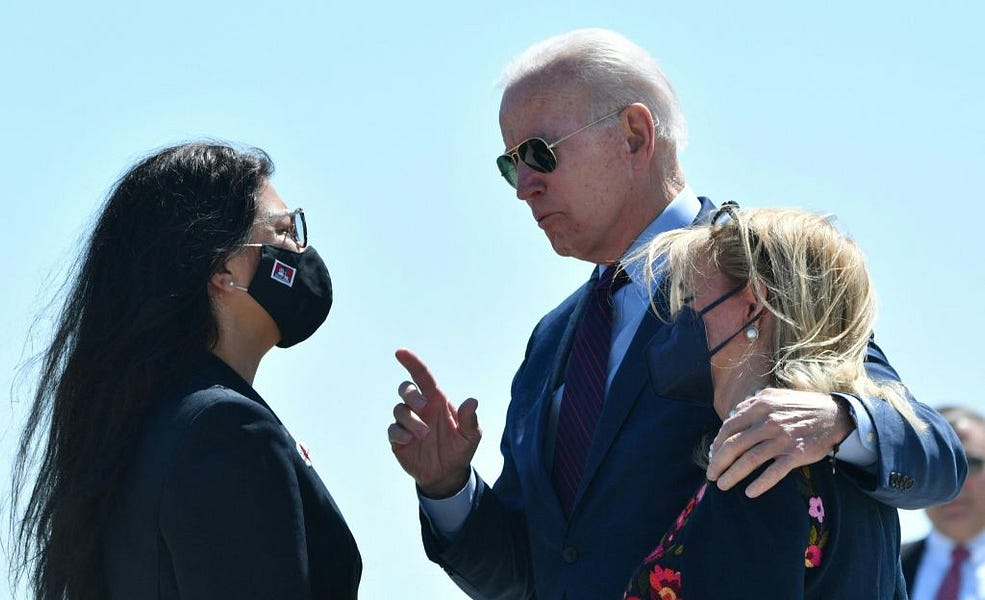
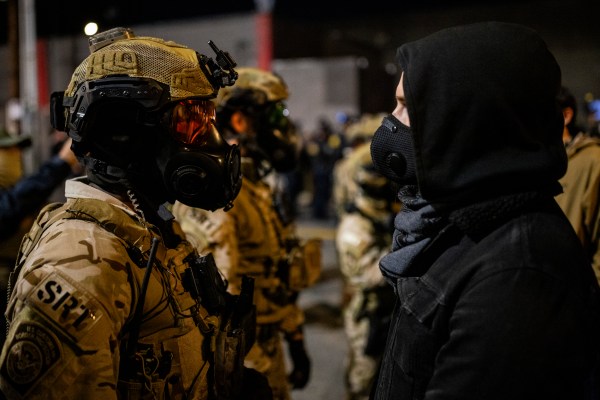


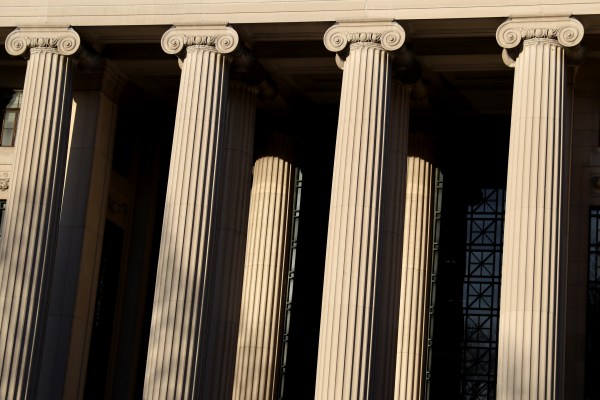
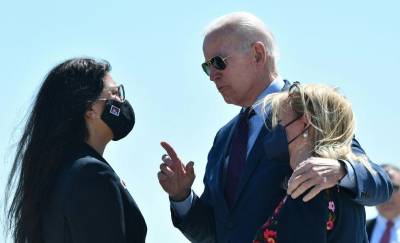
Please note that we at The Dispatch hold ourselves, our work, and our commenters to a higher standard than other places on the internet. We welcome comments that foster genuine debate or discussion—including comments critical of us or our work—but responses that include ad hominem attacks on fellow Dispatch members or are intended to stoke fear and anger may be moderated.
With your membership, you only have the ability to comment on The Morning Dispatch articles. Consider upgrading to join the conversation everywhere.